An expat's advice on food, culture, and cost of living in Japan
This article is written from the point of view of a UK expat and has information that can be helpful to those new to Japan.
On the 7th of January 2017, my partner and I moved from a small coastal town in the UK to a town in Itabashi, Tokyo called Tokiwadai. We’ve always loved Japan and wanted to see if we could make a living there. We used to go on holidays to Japan regularly, and we grew to love the people and its history.
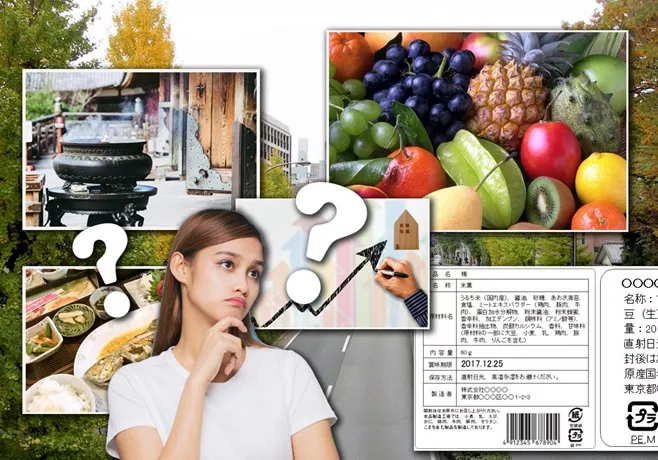
Japanese are proud of their heritage, which is something we greatly admire, plus they have such a deep and rich history which we love. When visiting a shrine or temple for example, the Japanese burn incense within and outside these holy places as they believe that this signifies and promotes health. It is believed that breathing in and covering yourself with incense can give you good health.
Prayer offering manners at shrines and temples in Japan
For expats thinking of moving here, whether it’s for the rich culture, job opportunities, or because they want a fresh start in a country so different to their own, there are a few things they may want to consider before making the move. From saving money and learning the language to maintaining a healthy and balanced diet, here are a few tips to help expats adjust to living in Japan.
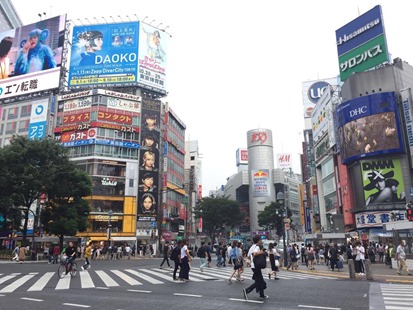
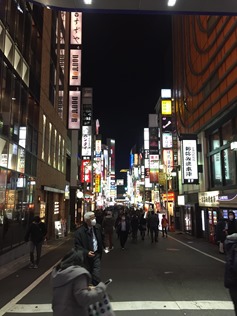
Bare necessities
Saving money when you first move abroad can be difficult, especially if you’re unsure of the average prices for everyday things such as food, clothing, the cost of transportation and rent. I try to sacrifice the luxuries and only buy the bare necessities for everyday life. However, there are some “luxury items” in Japan that are not necessarily considered a luxury back home in the UK.
Fruit for example, is considered a luxury product in Japan. Even though there is a much wider range of fruit available in Japanese supermarkets in comparison to UK supermarkets and stores, most are far more expensive. From heart-shaped watermelons and square musk melons to giant strawberries, these unique pieces of fruit can cost hundreds of dollars. We haven’t bought any of course! But even one normal peach can cost around three pounds (GBP) depending on the season.
Cost of rent
Depending on where you live, the cost of rent can vary greatly. I live in a town called Tokiwadai in Itabashi, Tokyo, in a smallish apartment. Itabashi is one of the least expensive wards (another word for a district or quarter) in terms of average rent in Tokyo. With my teaching job and by choosing to live in Itabashi, I make enough money to live on. Even after all the bills and rent are paid each month, I’m left with a good amount to spend on myself.
Average rent of properties in central Tokyo for corporate expats
Rental Apartments & Houses for Expat in Tokyo
Understanding food labels and menus
Food labels can be hard to understand if you don’t know the Japanese language. Very rarely will menus or food labels be printed in English, making it difficult for expats, especially those with allergies or health conditions, to find out what ingredients are included. This is where Google translate can come in handy. Even though Google translate isn’t always the best option because it usually gives you a loose translation, it can still be a useful tool.
Food packaging can also look very similar, especially for meats, making it difficult to differentiate between pork, chicken, and beef. There was one incident where we ran out of milk late in the evening so I quickly nipped out to get some. Luckily, convenience stores are all open 24 hours so I found the nearest one and began my hunt! Usually, a simple task such as buying milk would be easy in the UK, but as there were so many similar looking cartons with similar looking labels, I grabbed the one which to me, looked like the milk. It was only when I got home and opened the carton that I realized it was in fact breakfast yogurt!
An important piece of advice to help expats decipher Japanese food labels and menus is to learn one or two out of the three alphabets in Japan. These three lettering systems include hiragana (native Japanese words), katakana (words of foreign origin or borrowed words that when read out sound very similar to English words), and kanji (a system of Japanese writing using Chinese characters).
Having three alphabets can make it hard for expats to read food labels and menus, but knowing the basics of hiragana and katakana can be a great help. Me and my partner can read hiragana, katakana and a small amount of kanji, which has helped us translate simple words and phrases. For example, I remember feeling really happy when I read “コーラ” which when spoken aloud sounds like “ko ra” and means “cola”. There are many Japanese words which sound like English words, making it easier for expats from English-speaking countries to understand.
- The expiration date on food products in Japan
- Pick the right fish for your dish - How to read seafood labels in Japan
- Allergies in Japan: How to Read Japanese Food Labels
Healthy eating
While Japanese staple foods like rice and noodles contain a lot of carbs, there are plenty of healthy options here too. Plus, food portions are often smaller than those we’re used to in the UK or US which helps keep the calorie intake low. In fact, Japanese people on average eat fewer calories per day, due to a healthier diet which consists of eating more fish, more vegetables, less meat and dairy, as well as smaller portion sizes. A recent study by the BMJ even concluded that Japan’s healthy diet was the major factor behind the country’s high life expectancy.
I should also mention that the quality of ready-made meals here is very high, unlike ready-made meals back home that can sometimes be questionable. There is also a wide variety of vegetables available in supermarkets and stores, plus many traditional Japanese dishes are vegetable based including tempura which is fried vegetable or fish in a light batter. Tempura can be served cold or hot, and is usually served alongside soba noodles or rice.
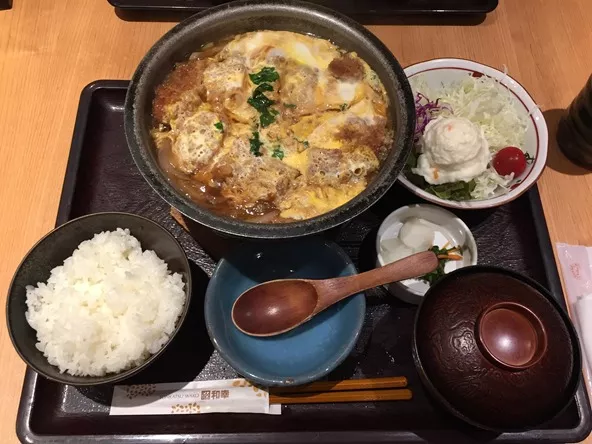
Because fruit can be expensive, I sometimes choose to substitute it with cheap, yet high-quality jelly desserts which contain fruit. Sushi, of course, is very popular in Japan. Despite what people may think, sushi does not mean “raw fish”, instead sushi mainly includes rice and vegetables, and only sometimes raw fish. Personally, I’m not too keen on sushi or fish, especially salmon, even though these are well-loved in Japan.
Mastering the art of chopsticks and tasty alternatives to fish!
Expats may want to learn how to use chopsticks as many eateries in Japan don’t initially provide knives and forks. Many will if you ask but chopsticks are not as hard to use as they may seem, so keep calm and keep practicing, you’ll be fine!
Chopstick Etiquette: A Simple Guide from Do’s to Taboos
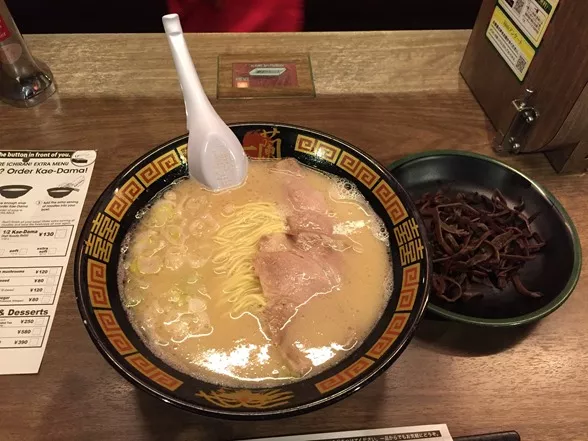
If soup, ramen, or sushi isn’t really your thing, there are plenty of tasty alternatives for expats, especially from Western countries who are used to certain types of food. Japan offers many eateries which serve burgers, pasta, and lots of chicken dishes so you can have a taste of the familiar.

Still, it is a good idea to try new foods and traditional Japanese dishes. Trying, testing, and tasting new food and drink can help expats to truly experience and become immersed in the country’s rich culture.
It can also be beneficial for expats to learn the language so you don’t have to rely on Google translate or other translation methods. Something that can appear simple at home, like buying milk, might be more difficult to achieve here as it can be a challenge to read food labels. Learning the two main alphabets (hiragana and katakana) can be a great help, which is why expats, especially those with allergies should try and learn these if they are thinking of living here.
From where to buy train tickets to where to find the best karaoke bar, my partner and I did as much research as possible which is something I would highly recommend doing if you’re wanting to live here. Research and preparation really are key to a successful transition into Japanese life. Not only will this better prepare you for your move, it can also prevent culture shock, especially for expats who live in western countries which have a contrasting culture to the one they may experience here.
Photographs & Article by Shaun

https://www.instagram.com/shornb/
Shaun is an expat from the UK, who moved to Japan in January 2017 to work as an assistant English language teacher. When he’s not teaching, he’s out experiencing all that Japan has to offer.



















